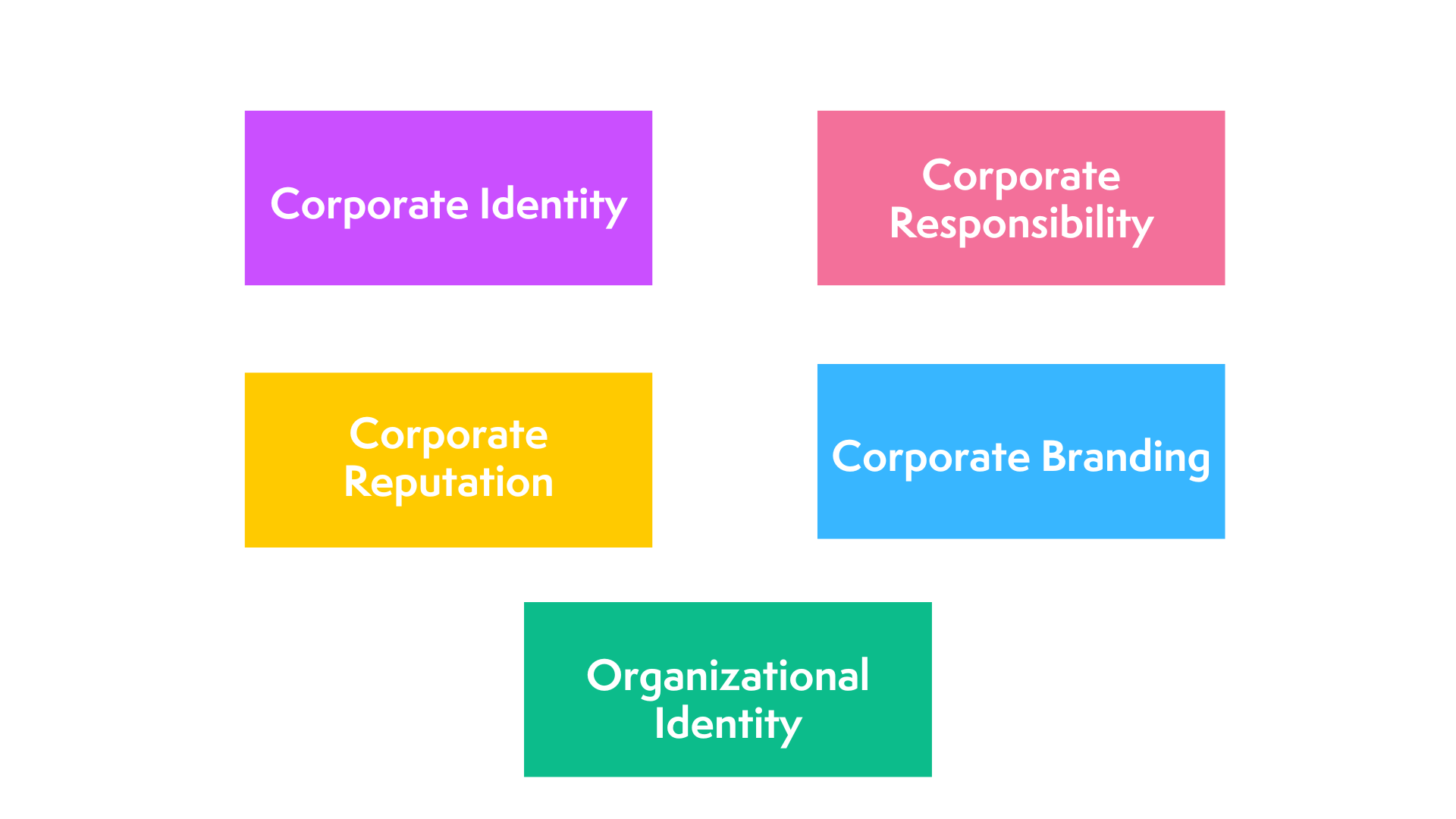Clear corporate communications are a must for any company in the digital age. We need to ensure that we are always well-connected and that messaging is consistent across all fronts. This united stance is presented through the discipline of corporate communications, which, in itself, can be broken down into several different areas.
This is a crucial area for not just customer-facing messaging but also for supporting employee relations and engagement. Research shows that productivity can increase by up to 25% in businesses where employees feel connected to their company.

What is corporate communications?
If we were to outline a strict definition of corporate communications, it would be how businesses choose to communicate with various groups. The groups might not be exclusive to external audiences like investors, regulatory agencies, or even the general public; they might also include internal audiences, namely employees.
Anything that falls under the bracket of communications will technically form part of a corporate communications strategy. This can include but is not limited to:
- Internal and external reports
- Website copy
- Marketing materials such as advertisements, emails, press releases, etc.
- Spoken communications such as press conferences, interviews, videos, meetings
- Non-verbal communication, such as infographics, photographs, and other aspects of corporate branding
This is obviously not an exhaustive list, but we can see the scope that corporate business communication encompasses. Think about it, 80% of customers expect companies to interact with them on social media. Though marketing employees might be the ones to actually hit “Post” on LinkedIn, comms will likely have a say in what the message actually says.
If an organization is engaging with anyone, including internal and external audiences, the messaging should have, at some point, been examined and green-lit by the business corporate communications team.
Why is corporate communications important?
Why is corporate communications important?
Imagine you’re in a room and a group of people are shouting a bunch of ideas at the same time. You’d probably feel confused, frustrated, and unable to focus on anything.
Now, imagine if this is how your customers feel when they interact with your company’s brand. If your marketing messaging is jumbled and unclear, your audience will feel that way, too.
This is why a company communications department is so critical. They cut through the noise and present one unified viewpoint that can be clearly understood by both internal and external audiences. They also have a massive hand in a company’s branding – something that has a huge influence on the customer. Research from McKinsey shows that 72% of shoppers expect businesses to recognize them as individuals, while 66% of first-time consumers expect messaging to be tailored to their needs.
This is why it’s so important to align content and messaging throughout your company. Any marketing communication will carry the same tone and wording regardless of the channel or mouth it comes from. Often, corporate communications can be key in ensuring that a business’s reputation is well-maintained. They are the ones who respond in times of crisis, but they also keep things running smoothly the rest of the time.
What are the core components of corporate communications?
When we define corporate communications, we tend to mix it all up and bring it in under one umbrella. However, by looking at each of the core components of corporate communication services, we can understand how they feed into and support one another.
Corporate Identity
Also sometimes referred to as brand awareness, this involves building a company’s reputation in a way that captures their audience’s attention. Branding is tied into every part of communications, from the logo and colors used on the website down to the emojis included in social media posts. The corporate comms team is responsible for refining this identity and ensuring that all communications, both internal and external, mirror the guidelines established.
Corporate Reputation
This is also sometimes known as brand credibility. Corporate reputation ultimately refers to how trustworthy a company is. Does it fulfill the promises made by the company to its users? Marketing and communications teams work hard to ensure that their campaigns do not mislead potential customers and they stand by ready to respond if a crisis does arise.
Corporate Responsibility
Corporate responsibility ensures that a company operates ethically and that the impact it makes on society, the environment, and the economy is all positive. When properly maintained, a corporate responsibility policy will add value to the organization and its practices. The communications team helps to maintain this positive reputation and will often take responsibility for circulating policies internally to employees and externally via PR campaigns.
Corporate Branding
It can be easy to see corporate branding as the same as corporate identity, but they, in fact, have some very subtle differences. While corporate identity often speaks to the representation of a business’s personality, corporate branding is the perception of the brand from the point of view of customers and stakeholders. This can include the emotional and psychological response and association customers have with the brand based on aspects created by the corporate identity.
Organizational Identity
If corporate identity and branding relate to how the organization is viewed externally, organizational identity refers to how the institution views itself. This is often established by a high level, such as the C-suite, and is then communicated to the rest of the company via the corp comms channels. Organizational identity is typically made up of three parts – purpose, value, and company culture – and it can influence both internal and external audiences.
What does a communications department do?
So, now we have an understanding of the meaning of corporate communication’s various facets, but what does the communications department actually do? You can bet that they aren’t just sitting around having conversations about logos and when to send out a memo, they have many other tasks that all fit together to create an overarching strategy and comms plan.
What does a communications team do? Some of their tasks include the following:
Media and public relations
The comms team will be the ones handling all media relations on behalf of the company. From organizing news conferences for big launches to just sending out statements and distributing press releases, they work to generate public and media interest in the brand and maintain uniform messaging.
Customer communications and marketing
With the rise of digital media, customer communications and marketing efforts have become quite closely entwined. If marketing and corporate communications are still two separate departments within an organization, they will often still work together closely on a joint marketing communications strategy. A content manager will help to align the two and their joint goals, with the digital marketing team making the various marketing materials that comms then pushes out through its various channels.
Crisis communication
It isn’t always sunshine and rainbows. When crisis strikes, it is often the company communications team that has to leap into action. They are the ones who have to answer questions from the press or external stakeholders, and they are also responsible for circulating company news and updates internally. Ultimately, they may have to manage a company’s image and reputation and hold things together through turbulent times.
Internal communications
The above examples cover external communications more than internal, but internal communications are still an important part of the role. If departments don’t know when there are important organizational developments, when policies are updated, or even just when the Christmas party is, teams run the risk of rapidly becoming siloed. Comms teams handle all internal messaging to keep every employee in the loop with what happens.
What important skills should corporate communications professionals have?
Those interested in pursuing a career in corporate communications will need to demonstrate several key skills in order to find success in this profession. Though an undergraduate degree in communications will not always be necessary to join this career path, it could teach many of the foundation skills necessary to flourish in a corporate communications department.
Writing
Naturally, a corporate communication executive must be able to craft flawless copy for a variety of sources. They may be writing a blog for internal communications, or drafting a speech for a senior leader to give at a press conference. This skill needs to be well-managed and developed so that the company’s voice speaks to a target audience from any background across multiple formats.
Presentation and public speaking
Communications professionals are required to speak to a wide variety of people, from the public or journalists to employees and internal stakeholders or investors. Someone looking to succeed will need to be a confident presenter who can speak with ease regardless of subject or timing.
Research
Anyone who works in corporate communications needs to have research skills of the highest order. A brand’s reputation can quickly go downhill if it is found to be sharing untruthful statistics or even just using misinformation to back up its claims. Whether they are for internal or external communications, the information presented must be as factually accurate as possible.
Critical thinking
Along with research skills, corporate communications executives must have a good grasp of critical thinking. What might look like a great statistic to promote might come from an untrustworthy source and if an alternate source can’t be found it might not be the best idea to use it. Thinking critically to predict the public’s response to a company’s offerings can also help to shape messaging – especially crisis communications – to ensure that they will be well-received by their intended audiences.
Data analysis and presentation
A big part of any corporate communication job will be the handling and interpretation of data. Comms teams will need to collect data from a variety of sources – some internal and some external – and will then need to think of ways to best adapt and promote their findings. From creating social media posts to press releases to even internal communications like an employee newsletter, it is down to the corporate communications professionals to come up with creative ways to analyze and present the data in front of them.
Technical skills
The world of tech is rapidly advancing at the moment, and it seems like every week has something new to bring. Big advancements like AI, blockchain, and virtual reality might seem far away from the interest of most communications teams but there is more of a crossover than you might imagine. Being able to demonstrate expertise in any of these solutions and other internal communication tools on the frontier of tech development could help boost a corporate communication career.
Keep communications open and accurate
No matter what a company’s products, industry, or reputation might be, how the organization communicates with its audience and employees must remain the same: open and transparent. Corporate communication functions best when there is clarity on best practices for creating and sharing messages.
Of the many tools that can be introduced to help ease corporate communication management, a company intranet like Axero can help streamline and centralize messaging.
From a team perspective, the comms team has one place where they can share documentation and processes for the creation of external communication.
For organizational communication, an intranet is also a great choice. From sharing internal blogs and updates for the entire company to just giving all employees a space to interact and chat in, it can provide one platform for everything.
With corporate communication forming such a vital part of modern business, communications teams deserve support. It is through their hard work that audiences can see a consistent brand and identity from a company. They are there ready to lend their expertise and provide a solution in both the good times and the bad.




















 info@axerosolutions.com
info@axerosolutions.com 1-855-AXERO-55
1-855-AXERO-55


